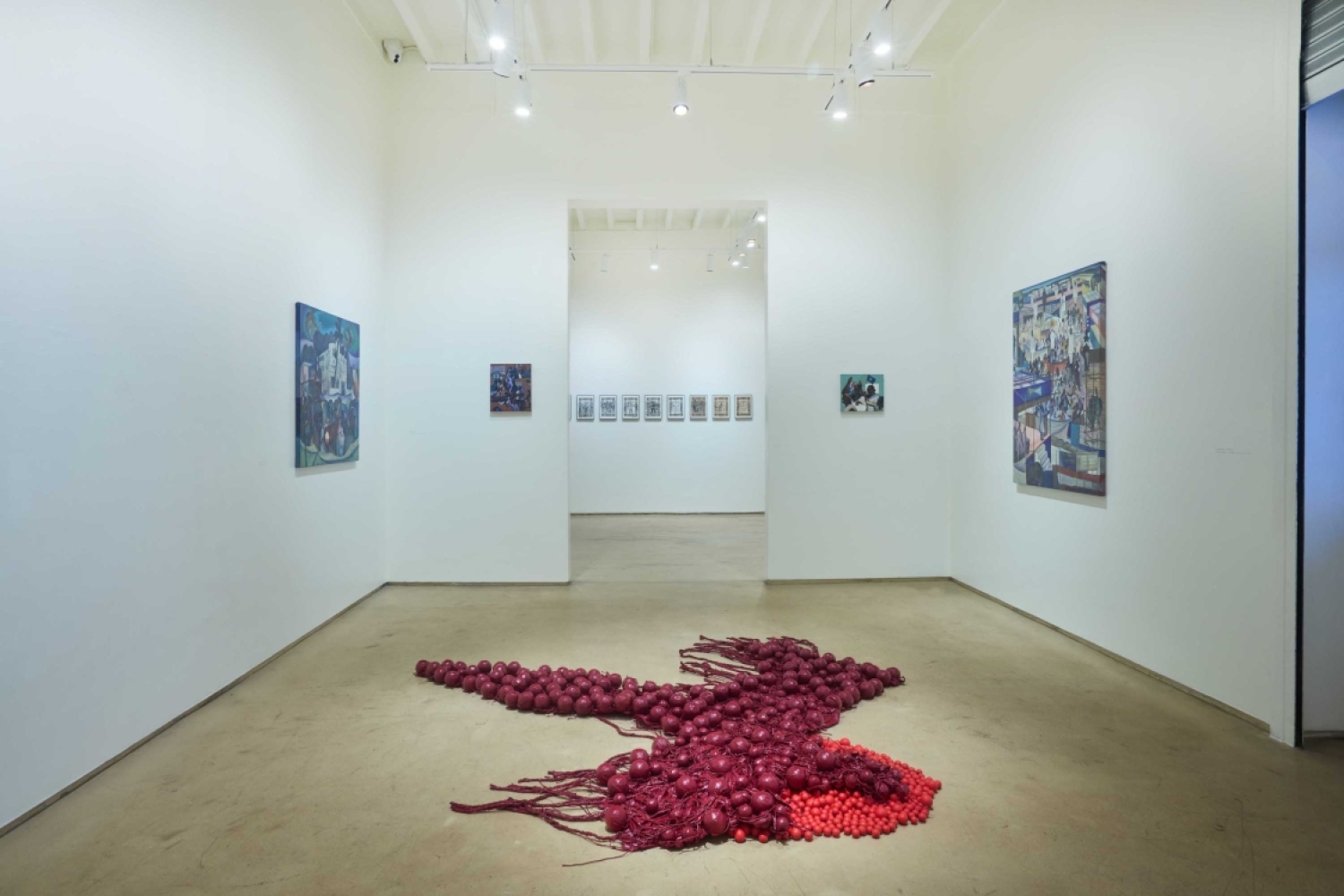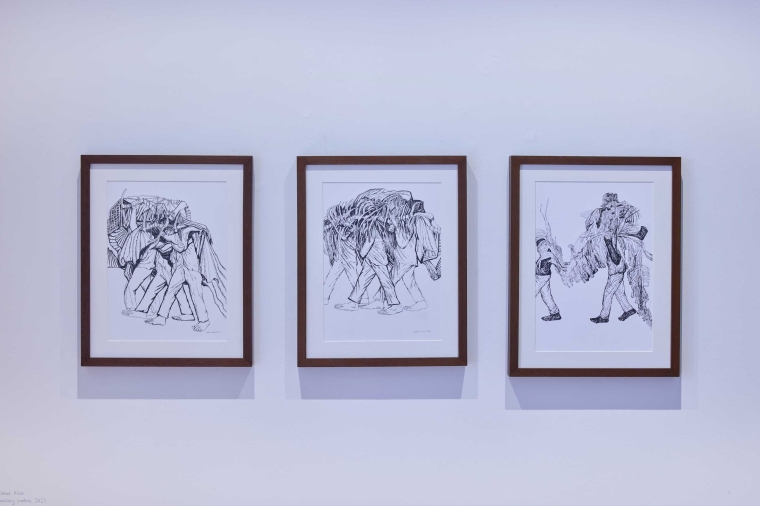

Hum Dekhenge, Hum Dekhenge, | We will see, we will see,
Lazim Hai Ke Hum Bhi Dekhenge, | It is inevitable (that) we too shall see, Hum Dekhenge, Hum Dekhenge, | We will see, we will see,
Wo Din Ke Jis Ka Vaada Hai... | The day that has been promised....
– Excerpted from Faiz Ahmed Faiz’s poem ‘Hum Dekhenge’
Experimenter presents ÛÙ… دیکھیں Ú¯Û’ | We Will See, a two-person exhibition by Pushpakanthan Pakkiyarajah and Vikrant Bhise at Experimenter – Colaba, Mumbai which brings together an immersive new body of sculptural installations, drawings and paintings. Hailing from two distinct social and political milieus, Pakkiyarajah and Bhise’s practices are both resonant with the archive of collective memory, which materialises through disparate visual expressions and becomes a testament to the unyielding human pursuit for resilience.
Pushpakanthan Pakkiyarajah (b.1989; lives and works in Batticaloa, Sri Lanka) is a multimedia artist whose practice ranges from installations to performance-based soundscapes, videos, and drawings. His work focuses on the destructive impact of Sri Lanka’s prolonged civil war, its effects on the ecological world and the lives of people existing amidst the ceaseless violence and trauma. Using motifs such as mycelium,
reminiscent of the damaging wounds inflicted on nature, while reflecting on how land becomes the bearer of the vestiges of war, Pakkiyarajah’s work explores how nature is rendered vulnerable due to human actions and offers a lens into how they are inextricably linked to each other.
At the centre of Vikrant Bhise’s (b.1984; lives and works in Mumbai, India) practice lies the ubiquitous presence of casteism which is entrenched in the social, economic, and political rubric of the nation and its intersectional implications on the movement for land, liberty, and labour. The indefatigable spirit of resistance demonstrated by Dr B.R. Ambedkar, Jyotirao Phule, Savitribai Phule and other anti-caste leaders to uphold the constitutional rights for caste-oppressed communities, anchor the core values of Bhise’s works. Through large-scale figurative paintings, Bhise portrays the archival memory of the Ambedkarite movement, personal and intergenerational lived experiences and the daily struggles shaped by caste-based discrimination.

In the exhibition, the artists address the realities of their own geographical and sociopolitical context and attempt to make way for the healing of collective trauma. Both Pakkiyarajah and Bhise emphasise the importance of staying attuned to the deeply fractured world around them, while keeping alive the hope for justice and right to self-determination through resistance, re-imagination and survival.
Words Platform Desk
Date 29.07.2024